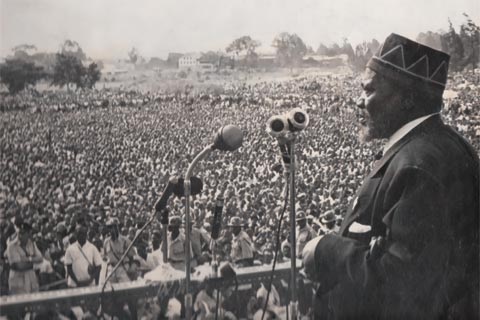Join Our Groups
Download the Notes Free
Kenya Notes
These notes follow the Kenya Syllabus. The notes have been prepared by qualified professional teachers.
We have:
Notes 1 and Notes 2
Click the links below to download the Notes:
IMPORTANCE OF MUSEUMS - PART 3
7. Inspiration
Museums
inspire and challenge us to think in new ways. Exhibits can spark creativity,
spur discovery, and inspire wonder through stories, music, art, information,
and adventure. They take learning out of the textbook and bring it into real
life through interactive exhibits, personal histories, or hands-on experiments.
8. Museums bring communities together
Museums
have the power to create unity on both a social and political level, but also
on a local one. Local museums are able to provide a sense of community and
place by celebrating a collective heritage, offering a great way to get to know
the history of a particular area.
There
are endless examples of local museums in the UK. One such institution is
the Hove
Museum and Art Gallery, located in Hove near Brighton. Housed in an
Italianate Victorian villa near the seafront, this local abode was once home to
a wealthy widow before housing German prisoners of war during World War II.
9. Education
In
terms of education, going to a museum can bring what is taught in schools to
life, by seeing artefacts or paintings for example. If children are learning
about the Romans for example and they go to an exhibition full of armour and
weapons dating from that period, they are more likely to find it interesting
and want to learn more about it.
Research
also shows that those who have had first-hand experience of such information
are more likely to retain it in later life. Museums can then be an extremely
valuable source of creativity, particularly organisations such as art galleries
or photography exhibitions, as many people find they are inspired and
subsequently want to try such activities themselves.
10. They Display Alternative Perspectives
on History
Many
mainstream history courses and books are biased,
focusing on the perspective of the dominant culture and ignoring the thousands
of minority cultures with fascinating history to be told. Museums display
histories, timelines, and perspectives you may have never heard before, potentially
altering the mind-sets of people who have simply never been educated outside
the mainstream culture.
This differing perspective is something any well-informed person should have.
When viewpoints are only taken from one’s own culture, they find themselves
severely limited.






EmoticonEmoticon